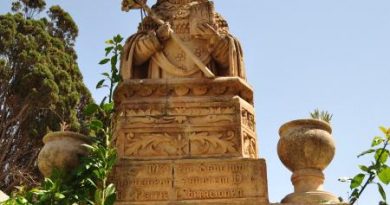Jesus’ prayer during the night of his agony
The night between Holy Thursday and Good Friday is a special one. It is the night which reminds us of the agony of Jesus in the Gethsemane garden.
Already the Hebrew name Gethsemane says something. Strictly speaking it means “oil press” or gat shemanin, in Hebrew. In that garden there was a grove of olive trees wherein an oil press was found. Even Jesus was pressed in that place. Here Jesus experienced the agony, was betrayed and arrested before being led to his passion and death.
The synoptic gospels of Matthew, Mark and Luke give us an ample death of the pressure Jesus was undergoing during his time of agony. In Matthew we find the following:
And taking with him Peter and the two sons of Zeb’edee, he began to be sorrowful and troubled. Then he said to them, “My soul is very sorrowful, even to death; remain here, and watch with me.” And going a little farther he fell on his face and prayed, “My Father, if it be possible, let this cup pass from me; nevertheless, not as I will, but as thou wilt.” And he came to the disciples and found them sleeping; and he said to Peter, “So, could you not watch with me one hour?
Watch and pray that you may not enter into temptation; the spirit indeed is willing, but the flesh is weak.” Again, for the second time, he went away and prayed, “My Father, if this cannot pass unless I drink it, thy will be done.” And again he came and found them sleeping, for their eyes were heavy. So, leaving them again, he went away and prayed for the third time, saying the same words. Then he came to the disciples and said to them, “Are you still sleeping and taking your rest? Behold, the hour is at hand, and the Son of man is betrayed into the hands of sinners (Matt 26: 37-45).
Mark’s version we encounter this scene:
And they went to a place which was called Gethsem’ane; and he said to his disciples, “Sit here, while I pray.” And he took with him Peter and James and John, and began to be greatly distressed and troubled. And he said to them, “My soul is very sorrowful, even to death; remain here, and watch.” And going a little farther, he fell on the ground and prayed that, if it were possible, the hour might pass from him. And he said, “Abba, Father, all things are possible to thee; remove this cup from me; yet not what I will, but what thou wilt.” And he came and found them sleeping, and he said to Peter, “Simon, are you asleep? Could you not watch one hour? Watch and pray that you may not enter into temptation; the spirit indeed is willing, but the flesh is weak.” And again he went away and prayed, saying the same words. And again he came and found them sleeping, for their eyes were very heavy; and they did not know what to answer him. And he came the third time, and said to them, “Are you still sleeping and taking your rest? It is enough; the hour has come; the Son of man is betrayed into the hands of sinners (Mark 11:32-41).
Whereas in Luke we find:
And he came out, and went, as was his custom, to the Mount of Olives; and the disciples followed him. And when he came to the place he said to them, “Pray that you may not enter into temptation.” And he withdrew from them about a stone’s throw, and knelt down and prayed, “Father, if thou art willing, remove this cup from me; nevertheless not my will, but thine, be done.” And when he rose from prayer, he came to the disciples and found them sleeping for sorrow, and he said to them, “Why do you sleep? Rise and pray that you may not enter into temptation” (Luke 22:39-46).
Imagine during this particular night Jesus praying while was feeling greatly distressed and troubled, … very sorrowful even to death (Matt 26:37-38; Mark 14:33-34).
In his catechesis regarding Jesus’ prayer in the Gethsemane Pope Benedict XVI in his General Audience of Wednesday 1 February 2012 exhorts us with these words: Dear friends, in prayer we too should be able to lay before God our labours, the suffering of certain situations, of certain days, the daily commitment to following him, to being Christian, and also the weight of the evil that we see within ourselves and around us, so that he may give us hope and make us feel his closeness and give us a little light on the path of life.
But what kind of prayer can we pray to equal with that of Jesus? In these moments of great turmoil we are to pray the prayer of abandonment by Saint Charles de Foucault, named The Prayer of Abandonment. In its simplicity and humble trust in God this prayer help us espouse Jesus’ own prayer in the Gethsemane Garden: Abba, Father, all things are possible to thee; remove this cup from me; yet not what I will, but what thou wilt (Mark 14:36).
Father, I abandon myself into your hands, do with me what you will. Whatever you may do, I thank you: I am ready for all, I accept all. Let only your will be done in me and in all your creatures. I wish no more than this, O Lord. Into your hands, I commend my soul; I offer it to you with all the love of my heart; For I love you, Lord, and so need to give myself: To surrender myself into your hands without reserve and with boundless confidence. For you are my Father.’
Let us pray this prayer not just during the night of Jesus’ agony but also after we receive Jesus in the great act of communion.
Fr Mario Attard OFM Cap




